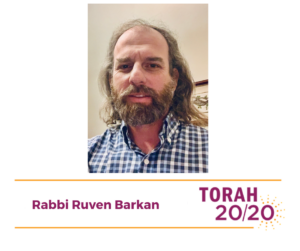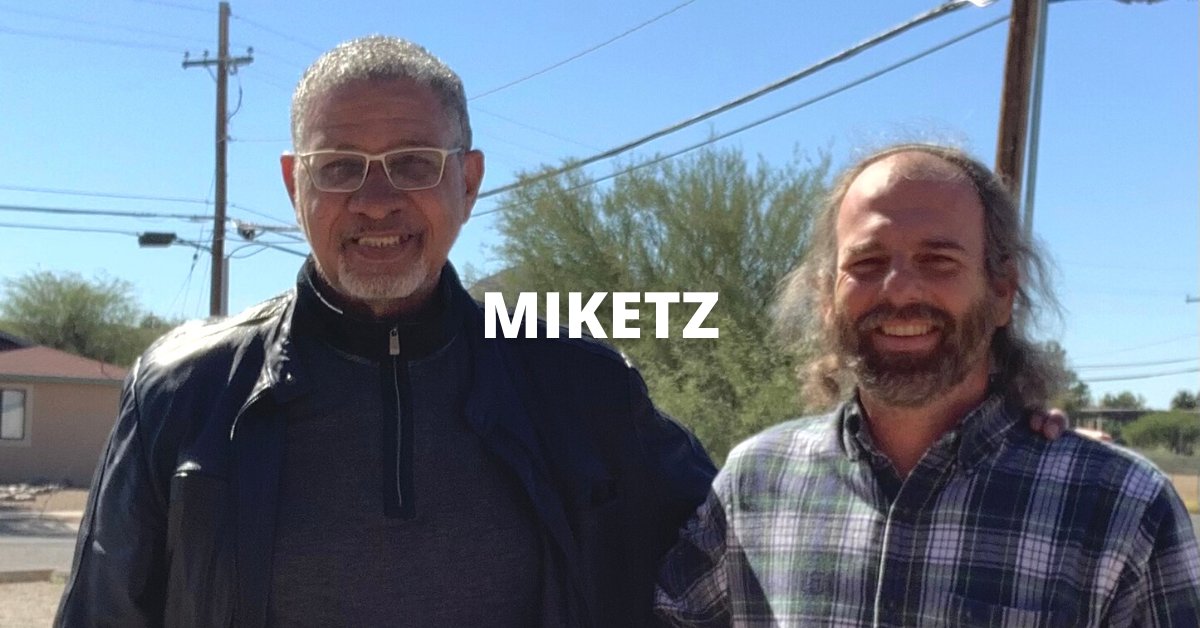A D’var Torah for Parshat Miketz by Rabbi Ruven Barkan
This summer, as we lived through the social upheaval fueled by COVID-19 and sparked by police brutality, I began to recognize more clearly the passive yet growing isolation and alienation between Jewish and African-American communities. (Recognizing, of course, that these are not mutually exclusive categories — that African-American Jews inhabit both worlds and are caught in the midst of this alienation.) Knowing how direct relationships can serve as bridges of understanding, I reached out to my colleague Reverend Elwood McDowell, pastor of an African-American church and lecturer in African American Studies at the University of Arizona, to invite him to co-host a podcast with me. We had a dynamic conversation about political, communal, and social issues, but what really bonded us together was how we, as leaders of faith, view these issues through a spiritual lens. We address our relationship with God and our responsibility to one another in a way that transcends the lines of race, religion, class, and nationality, but does not erase those lines.
In this week’s Torah portion, Miketz, Joseph is propelled from the dungeon into Pharaoh’s palace. Because of my lens as the descendent of American Jewish immigrants, I have always read this part of the Torah as an immigration story. Joseph comes to this foreign land with nothing, and through faith in his relationship with God, he thrives in dark places to fulfill his destiny, which he dreamed about as a child. Joseph achieves the enviable position of power. A moment ago, he was cast away in the dungeon; now, he wields power over all of Egypt.
Sign up to receive Torah 20/20 in your inbox each week.
At this pinnacle, Joseph has children in his new homeland. We gain an important insight into Joseph’s self-understanding through the explanation he gives of his children’s names:
“Joseph named the first-born Manasseh, meaning, ‘God has made me forget completely my hardship and my parental home.’ And the second he named Ephraim, meaning, ‘God has made me fertile in the land of my affliction.’” (Genesis 41:51-52)
The Joseph narrative is our people’s story of the American Dream: surviving oppression, coming to a new land, and building a new successful life. Jewish creators of superheroes of the 20th century fantasized about someone who could overcome their burdens, like Joseph, by transforming into a new person with superpowers. So too, on a family level, Jewish writers of the classic family sitcoms portrayed the idealized suburban family, shaping and reflecting American, especially Jewish American, aspirations. We needed to transcend our bitter family conflicts to achieve the main goal — taking our place in American society. Perhaps, like Joseph’s acknowledgement of still being in the “land of his affliction,” we maintain the awareness that, despite our wealth and power, we still struggle to preserve our Jewish community and values.
Reverend McDowell read the Joseph story completely differently: as a story of slavery, not immigration. Joseph did not leave his parents’ house; he was sold. This reading more accurately describes what happened to Joseph and gives new meaning to the explanations Joseph gives for his children’s names.
“God has made me forget…” Joseph needed to forget his family home to survive all the subsequent indignities he would endure: abandoned in the dungeon, abused by his master and mistress with false allegations, and — perhaps most cutting — sold into slavery by his own brothers.
Find more commentaries on Parshat Miketz
“God has made me fertile in the land of my affliction.” Even after Joseph gained immense power, he remained a slave. He was under Pharaoh’s rule. Reverend McDowell poignantly made this point by contrasting Joseph with Moses. While Moses would break away from the heart of the slave society to redeem his people, Joseph represented, enforced, and spread the oppression of the system by wielding power from his position inside of it. “God has made me fertile in the land of my affliction.” Maybe Joseph speaks with irony here about fertility, invoking the opposite meaning of what he says, a common device employed by African slaves that continues in African-American culture today. By contrast, he speaks openly of his affliction because there is no fooling anyone about his status; he is still a slave.
This African-American perspective turned the story of Joseph on its head for me. Not only did it illuminate parts of the text in new ways, but it has helped me better understand another people’s experience of history. Reading the text in this way has contributed to my faith journey — deepening my awareness, presenting me with different challenges, and demanding of me new commitments. I have focused most of my efforts as a rabbi on strengthening Jewish identity. While this is a vital mission, the upheaval in our society has made me more aware that making Jewish identity our prime concern risks perpetuating our community’s position of privilege. A Jewish identity that is built in dialogue with other communities enriches our understanding of who we are and animates our perspective on the truth.
I have focused most of my efforts as a rabbi on strengthening Jewish identity. While this is a vital mission, the upheaval in our society has made me more aware that making Jewish identity our prime concern risks perpetuating our community’s position of privilege. A Jewish identity that is built in dialogue with other communities enriches our understanding of who we are and animates our perspective on the truth.
Rabbi Ruven Barkan resides in his hometown of Tucson, Arizona. He is the co-host of the podcast, “Walking Humbly Together: an African American and a Jew; a pastor and a rabbi” which will be airing shortly.

